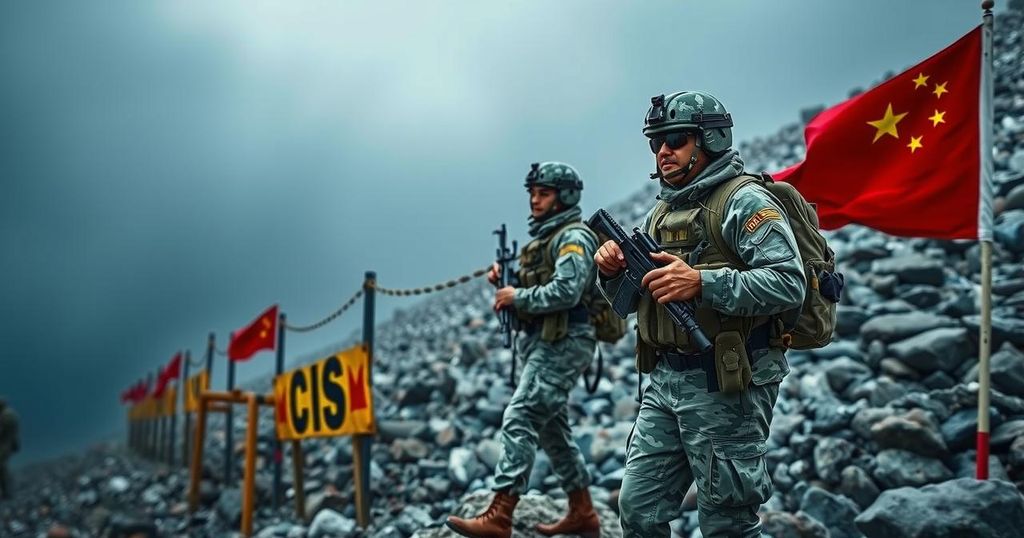India and China Reach Agreement on Border Patrolling in the Himalayas
India and China have reached an agreement to establish a scheduled patrol system along their contested border in the Himalayas, concluding a four-year military stand-off. This arrangement is expected to facilitate discussions between Indian Prime Minister Narendra Modi and Chinese President Xi Jinping during the upcoming BRICS summit. The pact aims to restore stability and prevent future clashes, while also addressing the need for improved economic ties.
India and China have officially agreed to a new protocol for patrolling their disputed border regions in the Himalayas, according to statements from Indian officials. This development signifies the conclusion of a prolonged four-year stand-off that had heightened tensions between the neighboring countries, which both possess nuclear capabilities. Indian Foreign Minister Subrahmanyam Jaishankar announced that the disengagement process has been finalized and highlighted the importance of maintaining peace to facilitate further progress in bilateral relations. The two nations’ militaries will now follow an agreed-upon schedule for patrolling contested border points to prevent future confrontations. The announcement coincides with Indian Prime Minister Narendra Modi’s upcoming participation in the BRICS summit in Russia, during which he may hold discussions with Chinese President Xi Jinping. Reports indicate that troop withdrawals from key positions will occur, accompanied by regular meetings and monitoring to ensure adherence to the new arrangement. While there is cautious optimism regarding this bilateral agreement, it is also recognized that fresh confidence-building measures will be necessary to solidify relations moving forward.
The history of India-China relations is marked by territorial disputes, notably over the Aksai Chin region and Arunachal Pradesh, which have led to military confrontations and longstanding tensions. In 2020, a violent clash in the Galwan Valley resulted in casualties and exacerbated diplomatic strains, leading to a halt in patrols along the disputed sectors. The agreement reached between the two nations represents a significant step towards restoring normalcy along the border, which has been a point of contention since the Sino-Indian War of 1962. This recent pact is also associated with broader implications for trade and investment, as past confrontations had led to increased scrutiny of Chinese investments by the Indian government, adversely affecting economic ties between the two populous nations.
In summary, the recent agreement between India and China on border patrols highlights a critical advancement in repairing bilateral relations that have been strained for years. As the two nations seek to enhance dialogue and cooperation, particularly in light of recent military escalations, this agreement could pave the way for improved diplomatic and economic interactions. However, both countries will need to take further steps to build mutual trust and confidence in order to foster a stable and prosperous relationship in the future.
Original Source: www.abc.net.au








Post Comment